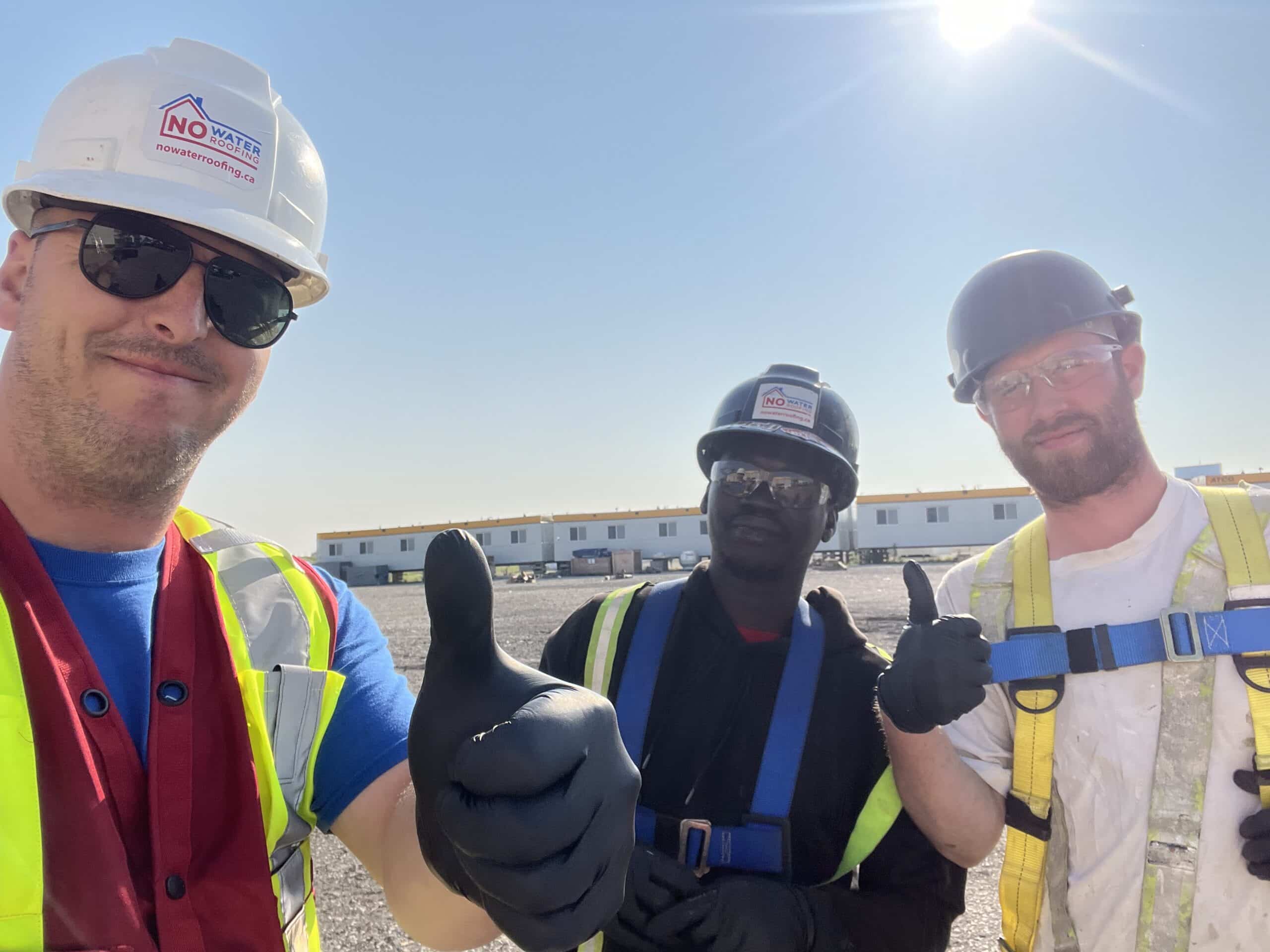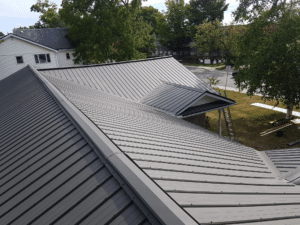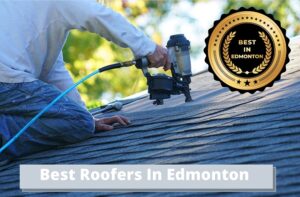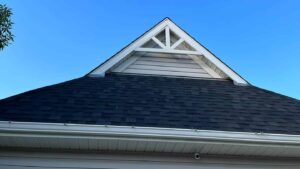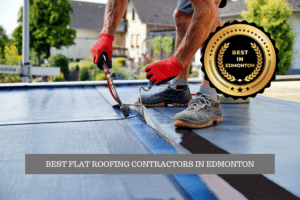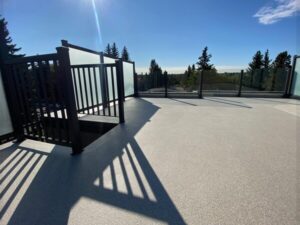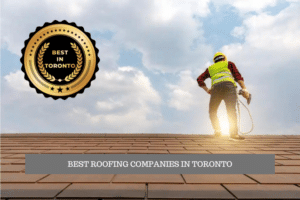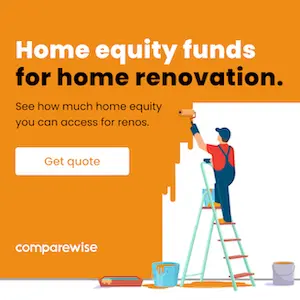If you own a flat-roof property, you may wonder what roofing materials protect your property best. These days, there are many different options for flat roofs.
In this article, No Water Roofing in Edmonton shares more on some of the different types of flat roof materials. Then you can decide which might be best for your property. For more information and professional advice, reach out to No Water Roofing.
Table of Contents
ToggleSingle-ply flat roof materials
There are several different single-ply materials used for flat roofing.
TPO
TPO, short for Thermoplastic Polyolefin, is a single-ply flat roofing material with three layers compounded into one-ply. These layers consist of fabric and rubber. TPO can be mechanically fastened or adhered to with adhesive.
PVC
Polyvinyl chloride (also known as PVC) is a single-ply vinyl material. With a PVC system, a contractor can mechanically fasten or fully adhere to the PVC using either adhesive or a loose-aid ballast. For both PVC and TPO, these lightweight materials are ideal when a new roofing system needs to be installed over an existing one.
EPDM
Ethylene Propylene Diene Terpolymer has similar characteristics to TPO and PVC systems. However, EPDM uses a synthetic rubber roofing material. As a result, EPDM is a popular choice for both residential and commercial properties. The main difference between EPDM, PVC and TPO is that EPDM uses glue as an adhesive, whereas contractors use hot air to weld PVC and TPO.
No Water Roofing has experience using all these materials for installing flat roofs in Edmonton. Give them a call to discuss these materials in further detail! They can help you make the perfect choice for your property!
Double-ply flat roof materials
Your property might benefit from a two-ply roofing system. Here is more information on those options.
BUR
BUR, also known as built-up roofing, uses a long-proven, double-ply technology to provide excellent resiliency to erosion. In addition, it has a ballast toping that is great at fighting off the elements. BUR also offers exceptional durability and puncture resistance.
SBS or torch-on
SBS (styrene butadiene styrene) adds polymer or cap sheets to BUR technology. With rubber-like characteristics, this makes SBS more versatile so that contractors can install it in many ways. For example, unlike BUR, which requires asphalt or gravel, a contractor can torch on SBS. This is why SBS is also often called torch-on or torch-down roofing.
No Water Roofing installs both BUR and SBS (torch-on) flat roofs. Torch-on requires highly-trained professionals and specific insurance for installation. No Water Roofing has ample experience in this area of installation. In addition, they are SECOR certified. This means they have developed a health and safety program that meets the high standards of the Alberta Construction and Safety Association.
Roofing in Edmonton
No Water Roofing has provided roofing services in Edmonton and the surrounding area since 2016. They are flat roofing specialists! However, they also offer a full range of sloped roof and metal roof services and work in both commercial and residential sectors. Plus, No Water Roofing employs certified journeymen and experienced roofers. Their company continues to grow, and they are always ready to assist with any roofing project, regardless of size.
Call No Water Roofing today to discuss your roofing needs!

